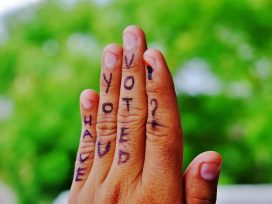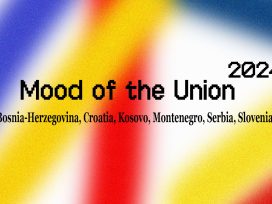What next for Brazil?
An escalation of violence brought Brazil to the verge of democratic collapse on 8 January, as Bolsonaristas stormed the centres of power, calling for a military coup. The worst was averted, but the country faces deep social divisions and a radicalized far-right, leaving President Lula no room for error.
On 8 January, Brazil watched in shock as thousands of Bolsonaristas invaded, looted and destroyed the presidential palace, the Supreme Court and the Congress, aiming to induce the Armed Forces to support a military coup against the democratically elected President Luiz Inácio Lula da Silva.
Behind the acts of terrorism were Jair Bolsonaro’s former Minister of Justice Anderson Torres (later arrested), military personnel of the highest rank of the Armed Forces, Military Police officers and, without a doubt, former President Bolsonaro himself, who fled the country the day before the end of his term in fear of arrest and is currently in Florida. Lawsuits are pending against him that could lead to ineligibility and even jail.
Some top-rank military and police officials, sympathizers of Bolsonaro, were passive or even conniving with the invasion of the centre of power of the Republic. However, they eventually accepted to submit to the President’s orders – not without some resistance: the commander of the army, General Júlio César de Arruda, was dismissed from his post for refusing to obey.
Bolsonaro, who is famous for preaching violence against opponents, attacking the press, targeting women and LGBTQI+ people, and loosening gun control laws, had repeatedly said he would not leave the presidency. Even though he backed out after the defeat at the polls, leaving his supporters on the streets without a leader, he bears the bulk of responsibility for the climate of division that has taken hold of the country.
Violence characterized the election race from the outset, with intimidation and aggression on both sides, but in clear asymmetry. All over the country, supporters of the incumbent President tried to buy votes, in one case even in front of television cameras; businessmen threatened employees with dismissal, trying to coerce them into voting for Bolsonaro; roadblocks were set up throughout the country, with demands for military intervention; aggressions took place even within families; a group of students from an elite school was planning to buy guns and kill those who supported Lula.
Despite everything, Lula was elected for a third, non-consecutive term. After spending 580 days in jail on corruption charges and seeing his chances of running for the presidency in 2017 suspended, the charges were dismissed, and Lula came back to lead Brazil
The difference in votes between the two contenders was just over two million, with Lula winning by a huge margin in the Northeast and Bolsonaro by a large margin in the South, bringing to light old, deep-rooted regional divisions in Brazil.
58 million Brazilians wanted the continuity of Bolsonaro’s government, responsible for hundreds of thousands of deaths during the pandemic – the ‘little flu’, as the President used to say –, for actively promoting the destruction of the Amazon rainforest, and leaving the country internationally isolated, only maintaining close contacts with outcasts like Hungary’s Viktor Orbán.
Although the collapse of democratic institutions has been averted, Lula faces a country in great tension, in political, economic and social crisis, with a widening gap between the more educated classes and those who have become hostages of fundamentalist evangelical pastors, and with hunger once again affecting millions of people.
Escalating tensions
Just after the results were out, Lula spoke about reconciliation and uniting a divided Brazil. Meanwhile, in at least 25 states all over the country, truck drivers and other supporters of Bolsonaro were staging demonstrations and roadblocks that could have led to shortages of basic goods, in an attempt to contest the outcome of the polls and force a coup.
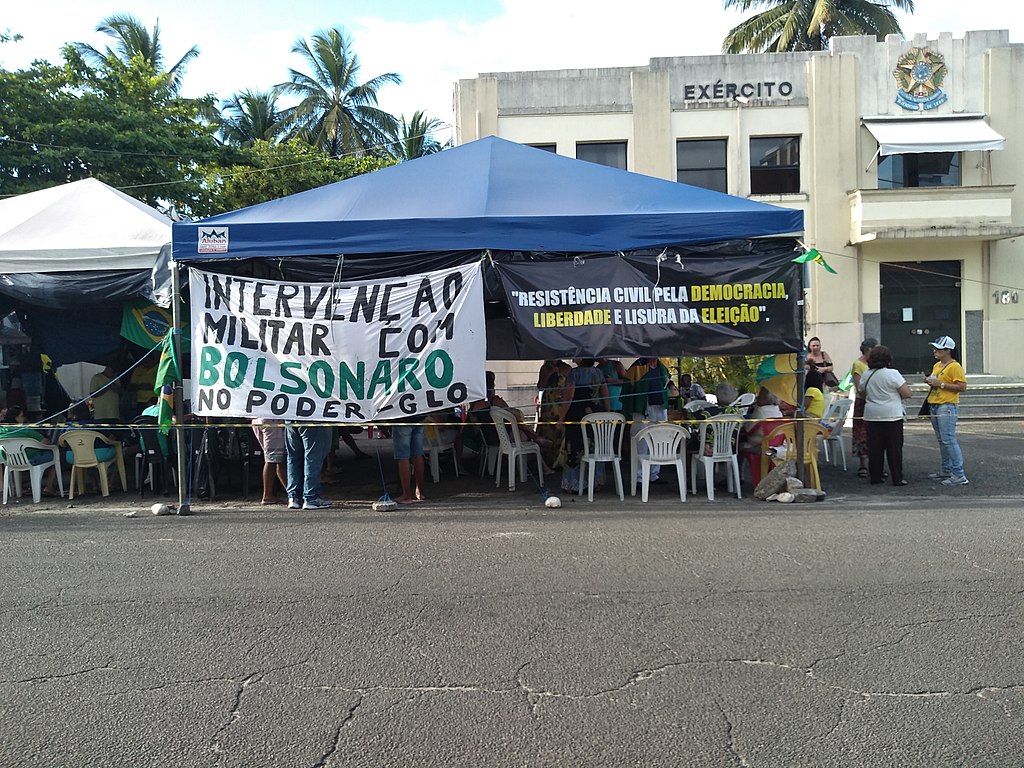
Ilhéus, Bahia. Bolsonaristas calling for a military coup after the 2022 election. Photo by Ixocactus via Wikimedia Commons.
Gradually, the radical militants began to leave the roads and concentrate their protests in front of army barracks, demanding military intervention to ensure the continuity of the Bolsonaro government. On the institutional side, Bolsonaro’s Partido Liberal (PL) filed in court a request to challenge the results of 279 thousand ballot boxes used in the second election round – without presenting any evidence of fraud or malfunctioning of the electronic ballots. The lawsuit was soon dismissed, and the party was ordered to pay almost 23 million reais (over 4 million US dollars) in fines.
A few weeks later, however, a new wave of road occupations started in states where the president had wide support such as Santa Catarina, Mato Grosso and Rondônia. Protests soon turned more violent, with analysts and even the Federal Highway Police (PRF) accusing Bolsonaristas of terrorism. Until that moment, the PFR itself had been criticized for being too lenient and even supporting the illegal and often violent demonstrations.
Bolsonaristas used homemade bombs made of bottles with petrol and firecrackers, intentionally spilled oil on the roads and set up barricades with burnt tyres, bins and tree trunks to block traffic flow. They also forced truck drivers to leave their vehicles and set them on fire – two men were arrested for this crime with gallons of petrol, firearms and almost 10,000 reais (approx. 2,000 US dollars) in cash.
In Mato Grosso, an ambulance and a winch were set on fire, and a tyre repair shop was looted to build barricades. The Bolsonaristas even opened fire on the Military Police, leading to the arrest of three potential domestic terrorists. Molotov cocktails and firearms were also used against the base of the concessionaire that runs a road in Mato Grosso. As with the first protests and road occupations, the police were accused of allowing pro-coup acts to occur and become increasingly violent.
The Police and justice are trying to identify those coordinating and financing the roadblocks and terrorist acts. Businessmen, many of them linked to the agribusiness sector, are thought to have been backing the illegal and violent actions.
The use of violence as a tool to pressure a coup, but also the fact that the protests were coordinated and financed by businessmen (who have also donated money to Bolsonaro’s electoral campaign), may lead to framing them as acts of terrorism and sabotage. In addition to this were Nazi-like tactics such as identifying the homes of Partido dos Trabalhadores (Workers’ Party, PT)’s voters in the interior of Rio Grande do Sul with a star on their doors (the symbol of the party), or boycotting companies accused of supporting the PT in the state of São Paulo.
In Santa Catarina, Paraná and other states, business owners accused of supporting the PT received offensive calls and negative reviews on social networks. Their names, phone numbers and company addresses were put on lists shared by Bolsonaristas in WhatsApp and Telegram groups. Some even received death threats, adding to an atmosphere of fear.
In small and medium-sized towns, the danger faced by Lula’s voters or alleged supporters was even greater. Many Brazilians feared that political violence could become the norm. In the camps set by Bolsonaristas close to military barracks in many cities, there were threats and intimidation against those who dared to criticize the mobilization. They were not willing to accept defeat – or democracy, for that matter.
‘The people’ rising
In a country already prone to violence, this dangerous escalation ultimately led democracy to the verge of collapse. What was seen before 8 January – the murder of Lula supporters, threats, intimidation, acts of sabotage, attacks on security agents – provided the background to the main plan to take power by storm. Police forces remained passive while the headquarters of power were being destroyed – including priceless works of art and historical items – and only then did they mobilize, albeit timidly.
Even the army initially intervened to prevent police arrests, and the media linked to the former president announced in triumph that ‘the people’ were rising. Terrorists live-streaming from inside the palaces and publicized their crimes in real time, in an attempt to incite even more violence and to ‘raise the masses’. But the reaction of the majority of the population, according to polls, was one of abhorrence.
Fortunately, despite the violence, there were no deaths. The institutions reacted quickly, and it was possible to prevent the worst from happening. More than 1,300 people were arrested, many of whom are still in jail and will face trials that could result in long prison sentences. Throughout the country, the government and the institutions are searching for those who financed the attempted coup, and the government has decided to change the command of the Federal Police and the Federal Highway Police throughout the country to stem undemocratic sentiments.
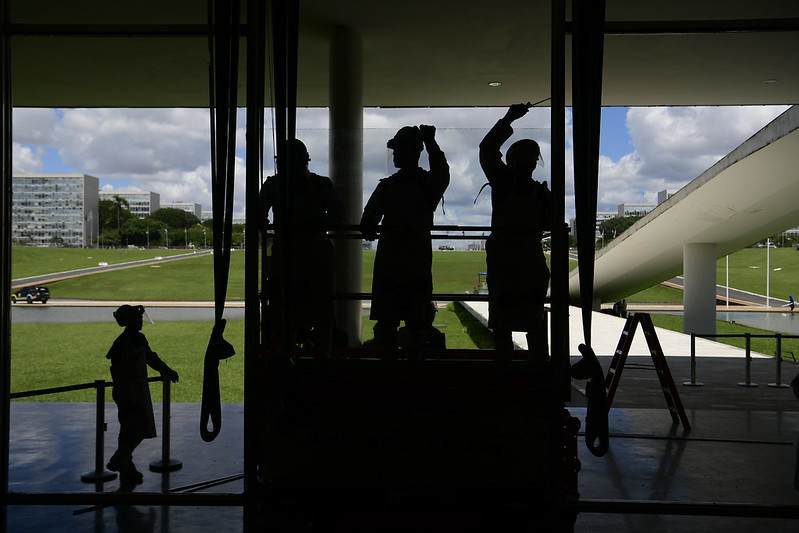
Reparations following acts of vandalism at the Congresso Nacional. Photo by Agência Senado via Flickr.
Supporters of the former President continue to announce new anti-democratic mobilizations amid the ongoing crackdown. The Supreme Court suspended profiles of social networks and sent to jail many enemies of democracy – not without criticism on abuse of power and laws, despite the critical moment the country is facing.
For example, the governor of the Federal District, Ibanêis Rocha, was removed from office for 90 days by Supreme Court judge Alexandre de Moraes, a measure that some considered exaggerated: President Lula had already decreed federal intervention in local public security, and there is no evidence linking the governor to the attempted coup, only his security secretary.
The aftermath: a divided country
After everything Brazil has been through, it does not need a reconciliation process as some preach, but a broad de-radicalization that can only succeed if Bolsonaro and those financing or promoting violent and terrorist acts are held accountable and swiftly punished.
The newly elected President Lula will have the goodwill of most of the world’s democracies. US President Joe Biden was quick to congratulate Lula on his victory, and the relationship between Brazil and the US is expected to gain new momentum (Bolsonaro had good relations with Donald Trump, but the same cannot be said for his successor).
It seems little, but international support is important to safeguard Brazil’s democracy and to prevent more radical sectors of the Armed Forces from acting against the Constitution. The 1964 coup that led to a 21-year-long Military Dictatorship in Brazil had not only the support but also the backing of the United States. Now, the situation is very different.
In Lula’s first and second terms, Brazilian foreign policy sought to have an active position on the world stage: it contributed to an agreement between Iran and Turkey on Iranian nuclear weapons, forged alliances with Africa, recognized Palestine as a state, and ensured Brazil’s international prominence while maintaining excellent relations with then-US President Barack Obama. Many remember this period and are hoping that the country could regain prominence. With Bolsonaro, Brazil ended up internationally isolated, and now some of Lula’s old policies might return to centre stage, with the country renewing the debate over a permanent seat in the UN Security Council.
It remains to be seen how Lula will navigate the thorny issue of Russia’s war against Ukraine. During the election campaign, he reproduced the old leftist Latino-American litany of trying to equate the aggressor with the victim, and Brazil’s role in the BRICS must also be taken into account. Yet Lula has also preached a cautious rapprochement with the US and the EU, and in his inauguration speech he stressed the need to talk to the EU about environmental issues and the preservation of the Amazon forest.
Lula promised to create a Ministry of Indigenous Peoples, possibly led by indigenous Congresswoman Sonia Guajajara, as a way to apologize for the treatment of indigenous people by his party. The Belo Monte dam, constructed during Dilma Rousseff’s presidency was condemned by international courts, and it still harms indigenous communities in northern Brazil.
Despite having managed to maintain a considerable presence in parliament, the radicalism of many pro-Bolsonaro activists and politicians could cause a split in their base and weaken the opposition to Lula, particularly after the attempted coup. Bolsonaro himself has been avoiding the spotlight since his defeat, showing little desire to command the base he helped create and strengthen, or preferring to do so behind the curtains.
It is hard to know which is worse between an organized fascist base, led by an overtly incapable figure, and a disorganized and increasingly radicalized one, with no one able to limit its actions. In either case, the danger posed by the far-right is real: the possibility of the emergence of a more capable leadership could channel radicalism into a more coordinated movement, with potentially enormous damage: a second attempt to overthrow the government might succeed.
Lula was elected in large part not because he was the preferred candidate, but because he was the only possibility of defeating Bolsonaro. Moreover, he would be over 80 years old in an eventual campaign for re-election, and his party has not only been unable to produce a new internal leadership, but has acted to prevent the emergence of new prominent figures across the left, for example by investing in dirty campaigns against the Minister of the Environment Marina Silva.
In many aspects, Brazil will have to rebuild itself from a scenario of growing extreme poverty, social unrest, immense dissatisfaction and distrust of institutions, and a looming global recession. Above all, it will have to build a broad government front, including parties and individuals from different ideological spectrums, and present a viable programme.
Lula will have no margin for error, not only for the sake of his government but for Brazilian democracy itself.
Published 27 January 2023
Original in English
First published by Razpotja 50, winter 2022/2023 (Slovenian version); Eurozine (updated English version)
Contributed by Razpotja © Raphael Tsavkko Garcia / Razpotja / Eurozine
PDF/PRINTPublished in
In collaboration with
In focal points
- Living dead democracy
- Why Parliaments?
- Spelling out a law for nature
- No more turning a blind eye
- The end of Tunisia’s spring?
- Protecting nature, empowering people
- Albania: Obstructed democracy
- Romania: Propaganda into votes
- The myth of sudden death
- Hungary: From housing justice to municipal opposition
Newsletter
Subscribe to know what’s worth thinking about.
Related Articles

The climate of hostility in which the assassination attempt on Robert Fico took place has been a feature of Slovak politics for the past two decades. And Fico has played a decisive role in creating it. How the situation in Slovakia came about – and whether it will continue to deteriorate.
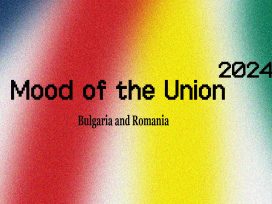
Fading hopes for change
Bulgaria and Romania
In Bulgaria and Romania, the EP elections coincide with national elections. Interminable political instability, corruption and socioeconomic tensions all contribute to voter fatigue. With the far right in the ascendant, 9 June could be a watershed.





